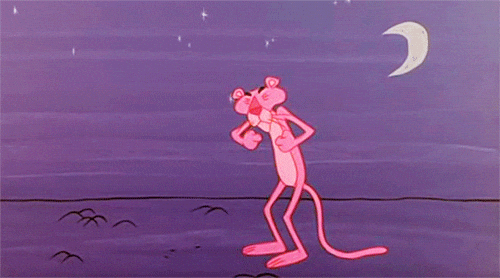I love sleep because it is both pleasant and safe to use.
Howdy, this is UniScoops! We’re the VAR overturn of academia, correcting errors and misconceptions one newsletter at a time!
So, without further ado…
Here’s a taste of what we’re serving today:
Circadian rhythms: exploring the clocks which control our body ⏰
PLUS: Music and Health, FOMO, and Entropy.
NEUROSCIENCE
Circadian rhythms: exploring the clocks which control our body ⏰
Ever wondered why you begin to feel tired as the sun starts to set? It’s mainly down to this nifty little system known as circadian rhythms: 24-hour cycles which are part of the body’s internal clock. They’ve evolved to deliver the right materials in the right amounts to the right body tissues at the right time of day. Without the time structure provided by the circadian system, our biology (and sleep!) would be plunged into chaos. The rhythms are generated by molecular clocks throughout the body which are synchronised by a specific area of the hypothalamus (a deep structure of the brain which acts as your body’s coordinating centre). Certain signals from the environment (mainly light) provide clues about the time of day so that the hypothalamus knows the amount and types of proteins the body needs to be churning out. Nearly all systems of the body are under the control of circadian rhythms so read on for some interesting ways the time of day affects your biology…
💡 Things to consider

How were teachers always so awake in the morning?! Credit to them (or their circadian rhythms?)
Performance: Ever thought your teacher seemed strangely awake at 9am while you could think of nothing better than going back to bed? This is because the circadian system affects the cognitive performance of adults and teenagers in different ways. Peak cognitive performance in adults is late morning but teenagers have a delay of about 2 hours in their peak! It has even been shown that pupils are likely to perform better if their exam takes place later in the day rather than in the morning. It’s not just cognitive performance which is affected; consider the ways in which you think the circadian system may affect athletic performance and its impact on professional athletes (see below for some further information on this!).
Chronopharmacology: This rather complicated term refers to the way that the circadian system affects the efficacy of medications and treatments. Interestingly, it’s been seen that if blood pressure medication is taken at bedtime, there is a 50% reduction in death rate compared to those that took the medication after waking. The concept of chronopharmacology means that medication should be delivered at the time of day when it is most needed and most effective. However, most medications are not taken at a time that optimises their impact. Think about some potential reasons for this.

Biological clock human.svg by YassineMrabet
Rhythm disruption: The circadian system is a master regulator of nearly all physiology so its disruption can have major health consequences. Common sources of circadian disruption include shift work and transmeridian travel (jet lag). Sadly, there is a strong correlation between night shift work and certain types of cancer. Additionally, most people with a diagnosis of a mental health problem also experience some form of clinically significant sleep disruption. However, this has led to experimentation into circadian disruption as a target for treating mental illness. How do you think sleep improvement programmes could be implemented and made effective in the population?

🔎 Find out more

🍒 The cherry on top
🎶 Music and Health: Music might be fun, but can it also be good for your health? This article highlights the potential of music therapy as a complementary or alternative treatment for various health conditions. Great if you’re into Music or Medicine.
😢 FOMO: In the next hour, I might miss out on the greatest thing that could happen to me. Or maybe that’s just the FOMO talking. FOMO, the fear of missing out, has infiltrated the zeitgeist in the past decade. What does the obsession with FOMO tell us about our desire to connect with others in an age of consumer capitalism and social media? Check out this podcast if you’re into Philosophy or Sociology.
🤪 Entropy: From the Big Bang to the eventual heat death of the universe, entropy governs everything. In this video, Veritasium explores what he describes as the ‘most misunderstood concept in Physics.’ Check this out if you’re into Physics (or even Chemistry!)

👀 Keep your eyes peeled for…

🗳️ Poll
How was today's email?
That’s it for this week! We’d like to thank this week’s writer: Abi Vukashin (Neuroscience).
💚 Like UniScoops?
Forward this edition to someone who’d love to read it for extra kudos!
📢 Want to tell us something?
Reply to this email to tell us what you think about UniScoops, or to give us any suggestions on what you’d like to see.
🧐 New to UniScoops?
Get your weekly fix of academia with our fun, thought-provoking newsletter. No jargon, no fluff, just the good stuff. Subscribe today.

